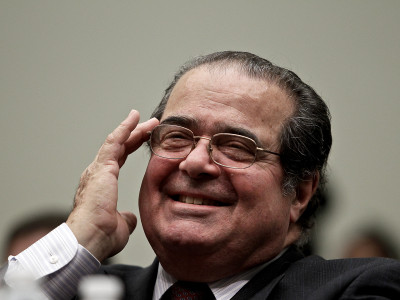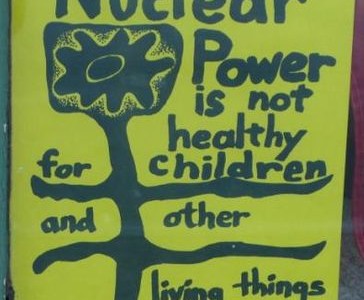federalism
Should the Feds Leave Regulation to the States?
The more we’ve learned about environmental problems, the less they seem purely local.
Voices in and out of the Trump Administration have called for a shift responsibility for environmental protection to the states. Given that none of them has ever shown enthusiasm for state environmental protection, it’s possible whether their rule concern is federalism or deregulation. (In fact, as NYU’s Ricky Revesz points out, Pruitt has generally opposed …
Continue reading “Should the Feds Leave Regulation to the States?”
CONTINUE READING“States’ Rights” and Environmental Law: California on the Front Lines
EPA’s Assault on Air Quality Protection Will Aim at California’s Standards, While Other States Have Given Up Their Authority to Protect Public Health and the Environment More Strictly
This article just published in the Atlantic explains well one of the many ways that EPA Administrator Scott Pruitt may attempt to deeply harm our environment for decades to come: through declining to grant, or revoking, the waivers that allow California to regulate air pollution from new motor vehicle engines more strictly than the federal government does. …
Continue reading ““States’ Rights” and Environmental Law: California on the Front Lines”
CONTINUE READINGWhat Does a Trump Presidency Portend for California’s Environmental Policies?
Constitutional Issues Loom Large in Future, Likely Federal-California Legal Confrontations
Sensing political storm clouds ahead, California Governor Jerry Brown yesterday issued a statement on the presidential election results that concludes: “We will protect the precious rights of our people and continue to confront the existential threat of our time–devastating climate change.” Several of my Legal Planet colleagues have recently posted thoughtful commentary on what Donald Trump’s …
Continue reading “What Does a Trump Presidency Portend for California’s Environmental Policies?”
CONTINUE READINGJustice Scalia and Environmental Law
Scalia’s decisions were almost unremittingly anti-environmental.
Over the past three decades, Justice Scalia did much to shape environmental law, nearly always in a conservative direction. Because of the importance of his rulings, environmental lawyers and scholars are all familiar with his work. But for the benefit of others, I thought it might be helpful to summarize his major environmental decisions. The …
Continue reading “Justice Scalia and Environmental Law”
CONTINUE READINGClean Air versus States Rights
A sleeper decision by the D.C. Circuit upholds federal air pollution authority.
The D.C. Circuit’s decision last week in Mississippi Commission on Environmental Quality v. EPA didn’t get a lot of attention, despite having a very significant constitutional ruling. Since the constitutional discussion doesn’t start until about page seventy, after many pages of scintillating discussion of matters like the reliability of private air pollution monitors and the …
Continue reading “Clean Air versus States Rights”
CONTINUE READINGAbalones and Gulls and Judges, Oh My!
Comparing the Mono Lake Committee with the Abalone Alliance
For several months now, I have been looking for a good comparison case to the Mono Lake Committee, whose work is one of the great success stories of the modern environmental movement. Why did the Mono Lake Committee succeed when other organizations failed? Lots of organizations had good causes and dedicated leaders: what made Mono …
Continue reading “Abalones and Gulls and Judges, Oh My!”
CONTINUE READINGLegislative Tantrums Over EPA’s Proposed Carbon Rule
Politico reports that eight state legislatures have passed bills protesting EPA’s proposed power plant regulation, in at least one case refusing to comply with any eventual regulations. This was a childish tantrum rather than an adult response. The ultimate hope, according to Politico, is that many states will refuse to submit compliance plans, and that this …
Continue reading “Legislative Tantrums Over EPA’s Proposed Carbon Rule”
CONTINUE READINGIs Missouri v. Holland in the Court’s crosshairs?
Justices look for limits on Treaty Power in domestic dispute case
The headline environmental cases at the Supreme Court this term are of course about the Clean Air Act, specifically about its application to cross-state pollution (as Dan has explained here) and to greenhouse emissions (as Ann has addressed here and here). But sometimes cases that at first glance seem wholly unrelated to the environment could …
Continue reading “Is Missouri v. Holland in the Court’s crosshairs?”
CONTINUE READINGBagenstos on the Health Care Case: Critical Reading for Environmental Lawyers
Sam Bagenstos at Michigan Law School has long distinguished himself as one of the most thoughtful constitutional doctrinalists in the country (and maybe the best disability scholar as well). He is out with a new article in the Georgetown Law Journal concerning the Spending Clause implications of the health care case. Environmental lawyers and scholars should …
Continue reading “Bagenstos on the Health Care Case: Critical Reading for Environmental Lawyers”
CONTINUE READING“United We Stand”: National Unity in the Face of Disaster
During the Republican primaries, Governor Romney proposed curtailing or even eliminating the federal role in disaster response, leaving the response efforts to the states or the private sector. Why does this seem viscerally wrong to so many people today (enough so that Romney first refused to answer any questions about it and then abandoned it …
Continue reading ““United We Stand”: National Unity in the Face of Disaster”
CONTINUE READING










